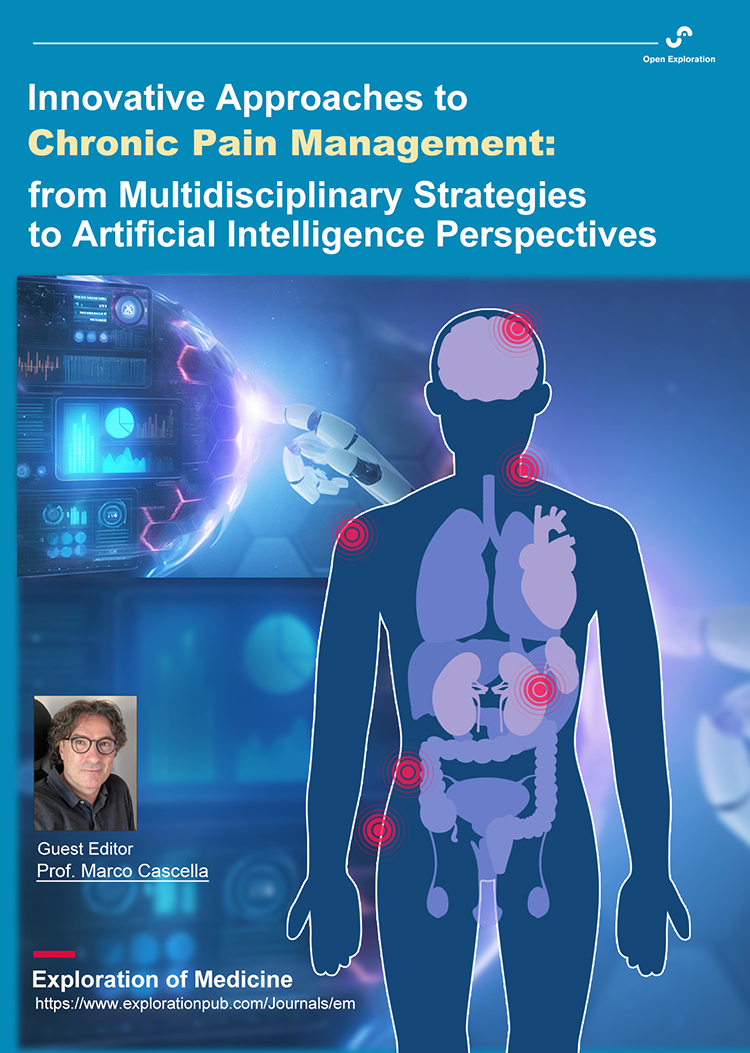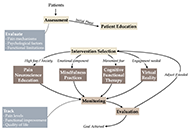-
 Special Issue Topic
Special Issue TopicInnovative Approaches to Chronic Pain Management: from Multidisciplinary Strategies to Artificial Intelligence Perspectives
Submission Deadline: April 30, 2025Guest Editor
Prof. Marco Cascella E-Mail
Professor of Anesthesia and Pain Medicine, Department of Medicine, University of Salerno, Fisciano, Italy
Research Keywords: anesthesia and pain medicine; opioids; cannabinoids; simulation; gamification; telemedicine; artificial intelligence; clinical research
About the Special Issue
Dear Colleagues,
Chronic pain, affecting millions globally, presents a persistent challenge in modern healthcare. Defined as pain lasting over three months, it significantly reduces quality of life and often resists conventional treatments. Clinical conditions including low back pain, cancer-related pain, post-surgical pain, osteoarthritis, neuropathic pain such as postherpetic neuralgia, and primary chronic pain disorders such as fibromyalgia and irritable bowel syndrome present unique challenges, necessitating tailored treatment approaches by implementing multidisciplinary approach. Interestingly, technological innovations can open new scenarios. For example, recent advances in artificial intelligence (AI) can offer a new dimension to chronic pain management, enabling more personalized, data-driven, and adaptive care strategies. Pieces of evidence suggest the AI's role for automatic pain assessment and its potential applications in optimizing interventions like neuromodulation and integration with wearable devices for real-time pain monitoring and telemedicine-based pain management.
Given these premises, this special issue will focus on a comprehensive exploration of chronic pain, covering a wide spectrum of topics, from physiopathology to the diagnosis, to pharmacological and non-pharmacological therapy. In this context, this issue will examine holistic and multidisciplinary strategies, combining pharmacological treatments, physical rehabilitation, cognitive-behavioral therapy, and other strategies. Additionally, we will highlight how AI technologies can enhance diagnosis and management across these conditions, using predictive analytics to identify patients at higher risk of chronic pain, and machine learning to create personalized treatment plans. Notably, the special issue will also explore broader considerations, including the social, ethical, and policy implications of chronic pain management in the digital age. Finally, key topics such as the opioid crisis will be addressed.
The goal is to collect a set of high-quality articles, including original investigations, evidence-based analyses and comprehensive reviews to provide a thorough overview of the current challenges and opportunities in chronic pain management. We are confident that researchers, clinicians, and policymakers will find important information in this special issue, offering them new perspectives on both established and emerging treatment strategies.
Prof. Marco Cascella
Pain Medicine. University of Salerno, Italy
Keywords: chronic pain; cancer pain; telemedicine; artificial intelligence; opioids; low back pain
Call for Papers
Published Articles
 Neuroscience-based approaches in chronic pain management: integration of mind-body interventions in rehabilitationOpen AccessPerspectiveChronic pain, affecting approximately 30.3% of adults worldwide, presents a significant global health issue, severely impacting individuals’ quality of life and creating substantial socioeconomic [...] Read more.Hyunjoong KimPublished: February 18, 2025 Explor Med. 2025;6:1001282
Neuroscience-based approaches in chronic pain management: integration of mind-body interventions in rehabilitationOpen AccessPerspectiveChronic pain, affecting approximately 30.3% of adults worldwide, presents a significant global health issue, severely impacting individuals’ quality of life and creating substantial socioeconomic [...] Read more.Hyunjoong KimPublished: February 18, 2025 Explor Med. 2025;6:1001282
DOI: https://doi.org/10.37349/emed.2025.1001282 -
-
Ongoing Special Issues
-
Completed Special Issues